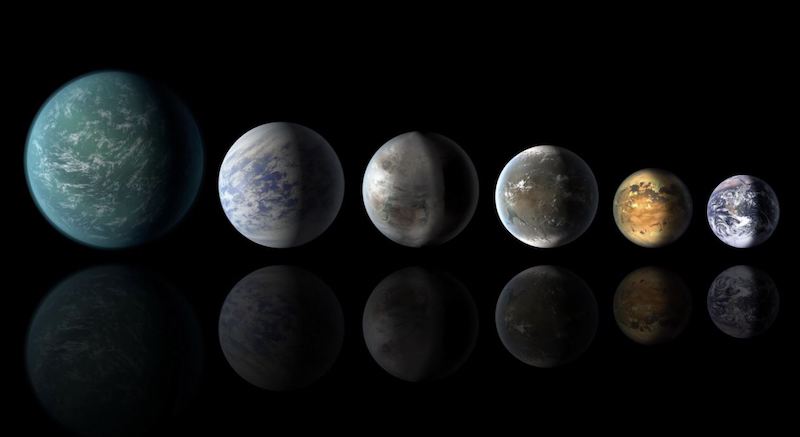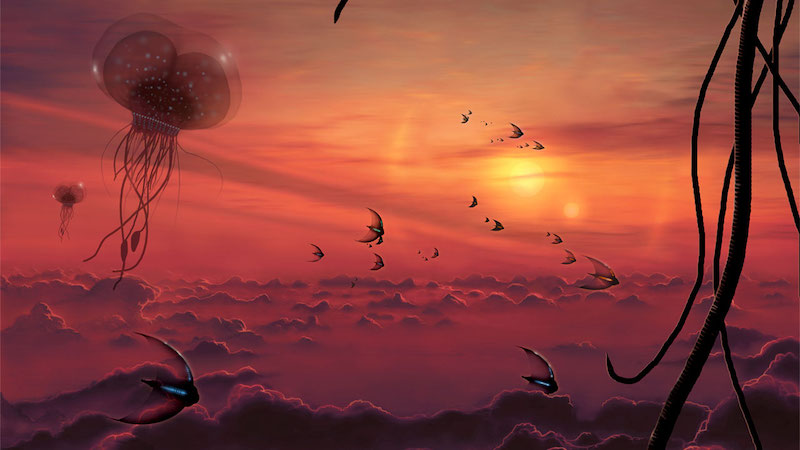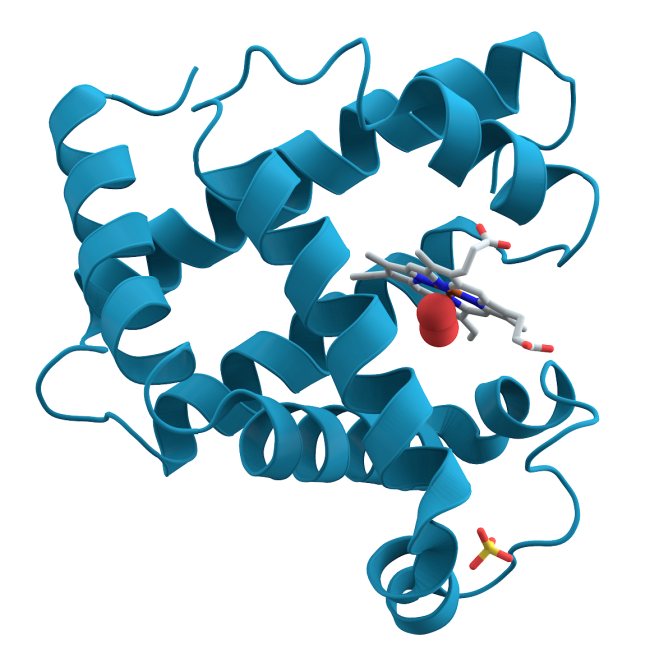
Searching for life unlike earthly life
Most searches for life on other worlds are based on what we know about life on Earth. Earthly life is still the only template for life we have. But what about life as we don’t know it? Researchers at Arizona State University (ASU) said in late February 2022 that they’ve devised a new way to search for alien life that isn’t like earthly life. They said the key is to look for:
… universal patterns in the chemistry of life that do not appear to depend on specific molecules.
The researchers published their intriguing peer-reviewed results in the Proceedings of the National Academy of Sciences (PNAS) on February 25, 2022. These scientists said in their paper:
All life on Earth is unified by its use of a shared set of component chemical compounds and reactions, providing a detailed model for universal biochemistry. But this notion of universality is specific to known biochemistry and does not allow quantitative predictions about examples not yet observed.
Co-author Sara Imari Walker of ASU commented:
We want to have new tools for identifying and even predicting features of life as we don’t know it. To do so, we are aiming to identify the universal laws that should apply to any biochemical system.
This includes developing quantitative theory for the origins of life, and using theory and statistics to guide our search for life on other planets.

The universality of life
The strategy, so far, is to search for life that is based on the same kinds of biochemistries as life on Earth. This makes sense, since many of those molecules and compounds are abundant throughout the universe. There’s still a common assumption that alien life would also be based on the same biochemistries. In other words, the universality of life “as we know it.” And, in many cases, that may be true.
However, we do not know what other types of biochemistry may be possible. Could there also be other kinds of universal life? Forms of alien biology so exotic and different that we may not even recognize them at first? As it turns out, there are ways of testing and predicting what they may be like. As Walker explained:
We are not just the molecules that are part of our bodies; we, as living things, are an emergent property of the interactions of the many molecules we are made of. What our work is doing is aiming to develop ways of turning that philosophical insight into testable scientific hypotheses.
A biochemical process
Identifying alien forms of life comes down to a basic question: just what is life, anyway?

As lead author Dylan Gagler, a bioinformatics analyst at New York University Langone Medical Center in Manhattan, surmised:
It’s a surprisingly difficult concept to pin down. As far as I can tell, life is ultimately a biochemical process, so I wanted to explore what life is doing at that level.
The researchers used enzymes as a basis for their studies. Enzymes, known as functional drivers of biochemistry, are proteins that act as biological catalysts in living organisms, regulating the rate at which chemical reactions proceed, without themselves being altered in the process. The researchers investigated the enzymatic makeup of bacteria, archaea and eukarya in the Tree of Life. They did this using the Integrated Microbial Genomes and Microbiomes database. By doing so, they accounted for the majority of Earth’s known biochemistry.
Universal biology: looking for statistical patterns
So, how did the researchers use this data to search for new kinds of universal biology? As it turned out, they found statistical patterns that pointed to a new type of biochemical universality. These patterns provided evidence for a new biochemical function of enzymes that is shared across the Tree of Life. These biochemical functions cannot be explained by already known enzyme functions, ones that all known forms of life on Earth use. Co-author Hyunju Kim of ASU said:
We identified this new kind of biochemical universality from the large-scale statistical patterns of biochemistry and found they are more generalizable to unknown forms of life compared to the traditional one decribed by the specific molecules and reactions that are common to all life on Earth. This discovery enables us to develop a new theory for the general rules of life, which can guide us in the search for novel examples of life.

A new kind of biochemical universality
From the paper:
Together, our results establish the existence of a new kind of biochemical universality, independent of the details of life on Earth’s component chemistry, with implications for guiding our search for missing biochemical diversity on Earth or for biochemistries that might deviate from the exact chemical makeup of life as we know it, such as at the origins of life, in alien environments, or in the design of synthetic life.
Basically, this supports the possibility of life existing elsewhere that is not based on the same common biochemistries as life on our own planet. As co-author Chris Kempes of the Santa Fe Institute added:
We might expect these results to hold anywhere in the universe, and that’s an exciting possibility that motivates a lot of interesting work ahead.
Bottom line: Could there be alien life based on very different biochemistries from life on Earth? New research into universal biology and “life as we don’t know it” says yes.
Source: Scaling laws in enzyme function reveal a new kind of biochemical universality
The post Searching for life as we don’t know it first appeared on EarthSky.
0 Commentaires